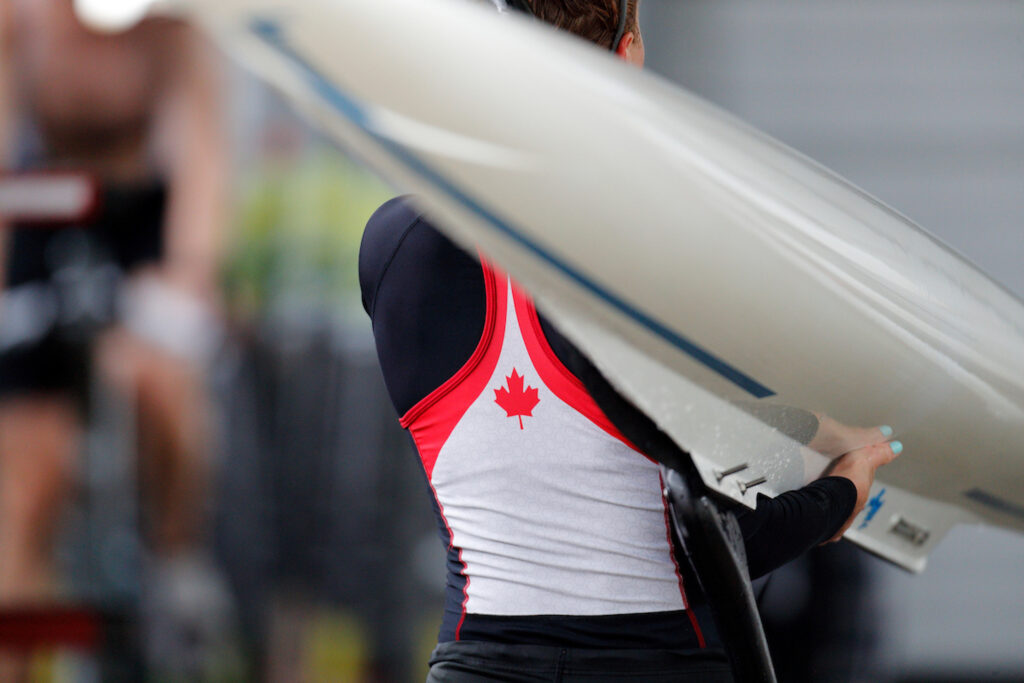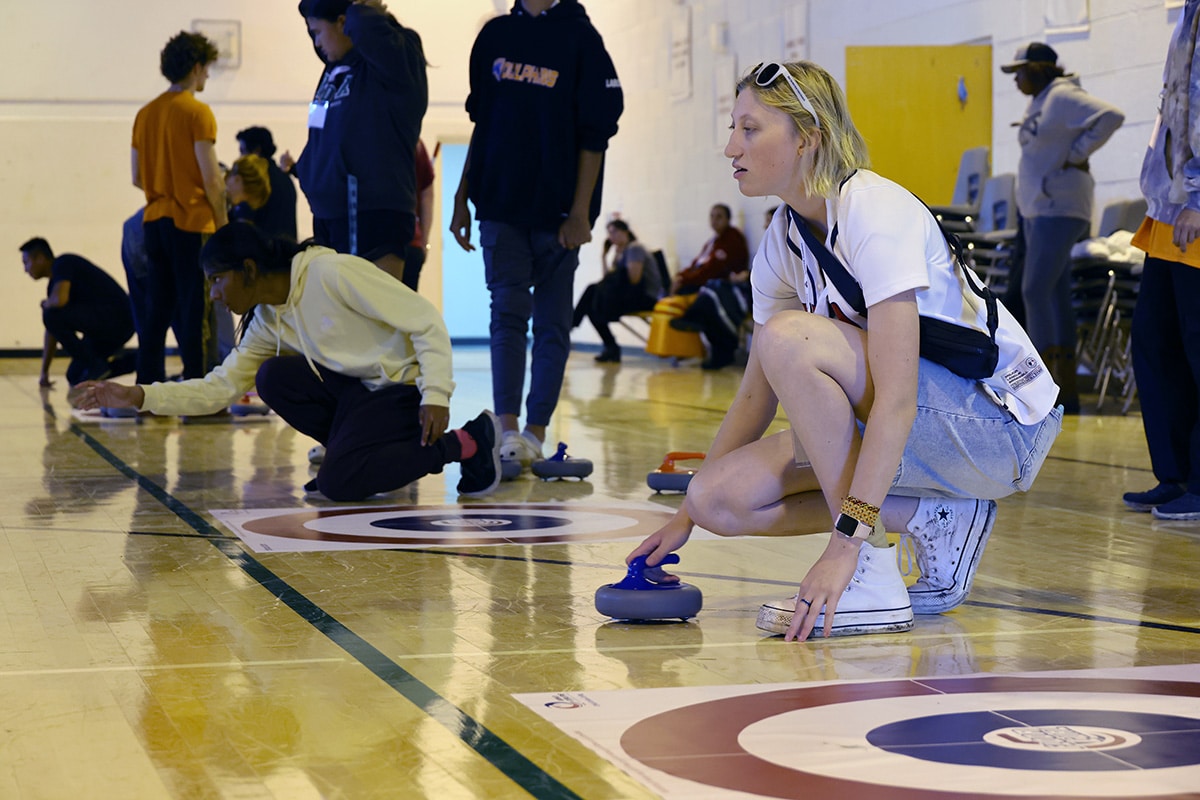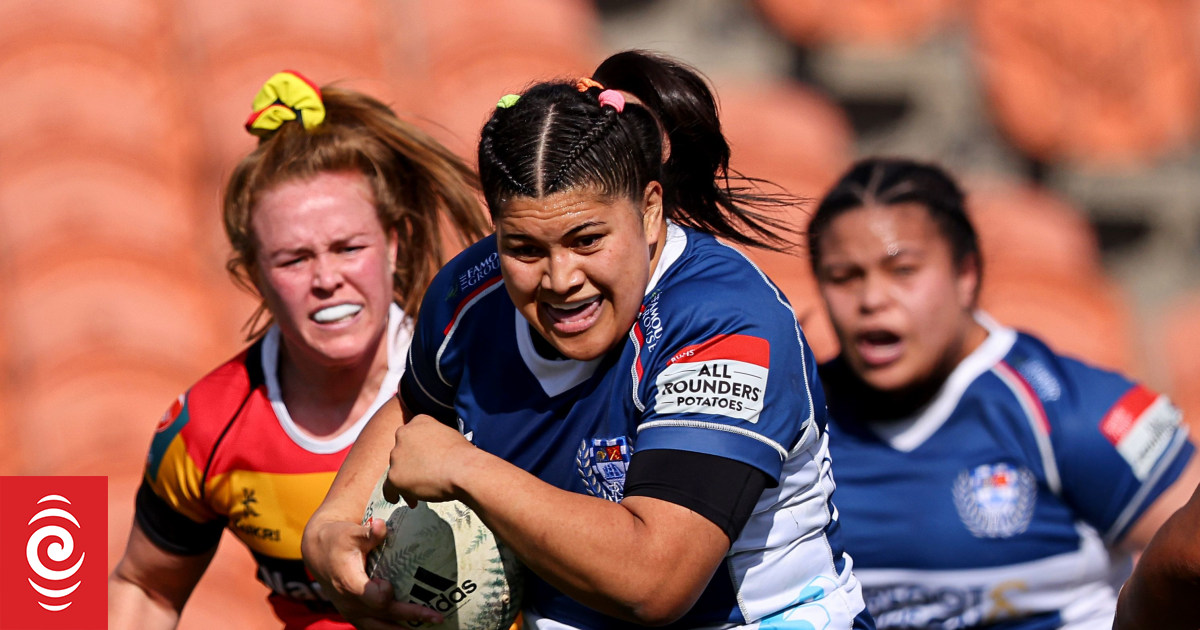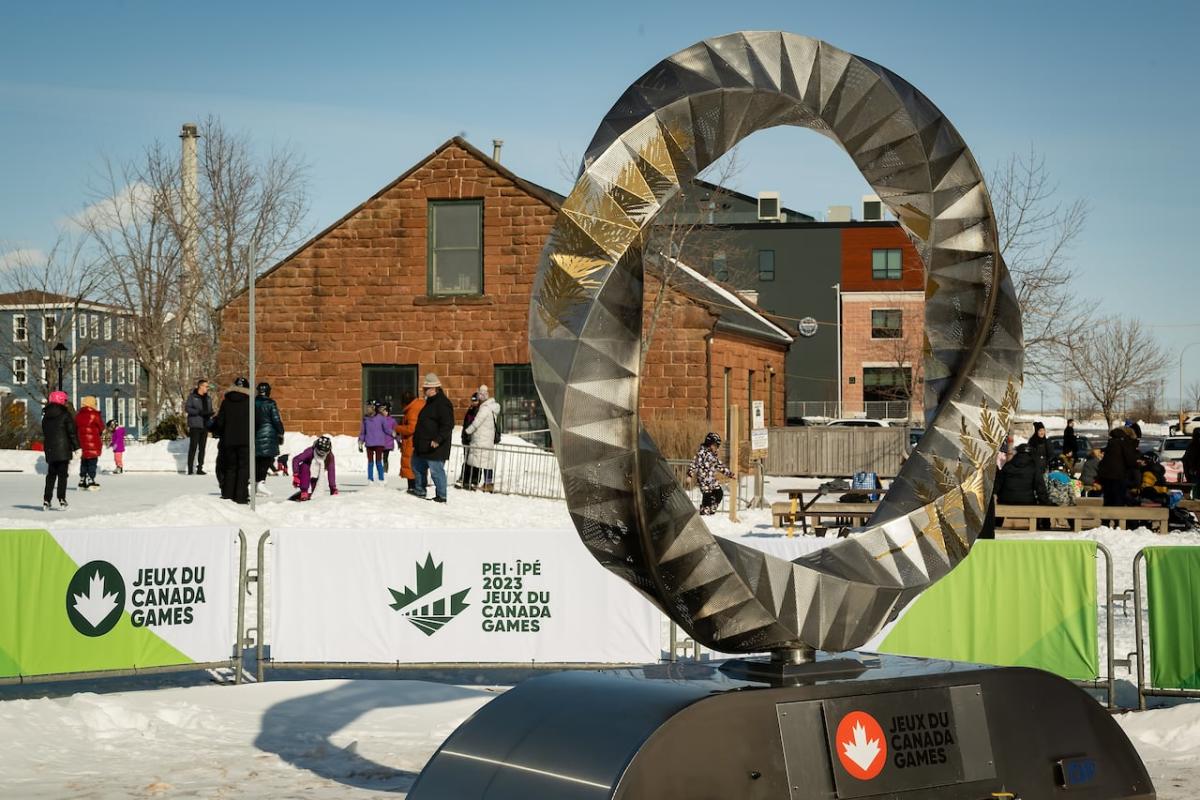TORONTO – Amy Shipley put it very succinctly.
“(When) we talk about engagement, retention, integrating Indigenous women into spaces, it’s the principle of ‘Nothing about us without us,’” said Shipley, Sask Sport’s manager of sport participation.
“Really what it means is if we want to get more women involved, it’s important to ask women and invite them to the table and listen to their voices. You know, as Indigenous women, we have solutions and we need to be invited into spaces to share those solutions and be part of that engagement process, not just as token women sitting around a table. We really need to bring people in.
“If you’re looking to create programs for indigenous children or for new Canadians, whoever they may be, really using this principle of ‘nothing about us without us’ is a good way to go. You have to talk to people and find out what their needs are if you want to work with them and engage with them.
RELATED
» Diversity is strength: conversations and much more
» CFL teams recognize the need for truth and reconciliation
» Behar and Korte deliver a message of inclusiveness in football
» Subscribe to the CFL newsletter for exclusive offers and league updates
Shipley joined Kevin T. Hart, CEO and President of Indigenous Football Canada and coach of the National Indigenous Women’s Under-18 Team, which competed for the first time last summer at the Women’s National Championship in Ottawa, and to longtime CFL official Brian Chrupalo. for a conversation with Donnovan Bennett as part of the latest installation in the CFL’s Diversity Is Strength Conversations series.
The fifth installation in the series focuses on the Truth and Reconciliation Commission’s calls to action and how sport can play a role in reconciliation.
Hart, who began meeting with Football Canada president Jim Mullin in 2018 and later as part of a diversity task force convened in 2021, referenced the TRC’s references to sport, diversity and the inclusion of women. The former Manitoba regional chief of the Assembly of First Nations Canada and member of the Manitoba Football Hall of Fame sees a huge opportunity for sport to embrace reconciliation.
“In October 2022, we and Football Canada were still in the early stages of developing Indigenous Football Canada,” he recalls. “We started having a very serious conversation about creating the first ever national Indigenous football team to compete in the Canada Cup.
“At the time, we didn’t know until February (2023) that it was going to be an U-18 women’s team. This U-18 team, the National Indigenous Women’s Tackle Football Team, was the first national Indigenous team in Canadian sport to compete at this level with other provinces and territories.
Hart sees that first team – with some of its players pictured at the top of this story – having a huge impact, particularly if it was a women’s team.
“Years from now, when I’m long gone, people will look back and say, ‘That’s the first team to do that.’ And this was a team of young women that will pave the way for other teams to come,” he said.
“These girls have broken down barriers you can’t even imagine. Indigenous women in this country face many obstacles and stereotypes. It’s heartbreaking. Empowering these young women and giving them this opportunity is something that means a lot to me. It’s so historic, because I see the realities these young girls come from every day. If some of you knew these realities, you would lift up these girls and applaud their successes, even being able to be on the field with the national team.
Chrupalo is a lifelong Winnipegger with nearly 30 years of experience with the Winnipeg Police Service. He is in his 18th season as a CFL official and has appeared in five Gray Cup games, including the 109th edition of the game in Regina last year. He made calls in both English and Ojibwe at the Blue Bombers’ Truth and Reconciliation Night last year, making history as the first CFL official to do so.
The idea of “nothing about us without us” resonates with him and is something he carries with him in every man in his life.
“Giving young people the opportunity to play sport is of crucial importance. “It was critically important in my childhood,” he said.
“It was an opportunity for me to play and participate in sports, even though I wasn’t financially able to play certain sports. I had the ability and support system from schools and my parents to allow myself to go out and participate and play sports. I wanted to have a big influence in my education and in my relationships with my friends and the community as well.
“Watching and seeing the highlights of the things Kevin did this summer with Indigenous women’s football, it was amazing to follow him on social media and see what was happening. »
CFL official Brian Chrupalo made history last year when he called penalties during a Blue Bombers game in Ojibwa. (Dave Chidley/CFL.ca)
Chrupalo sees Hart’s work as an important step in facilitating reconciliation. He also listed other non-sporting issues, such as increasing the number of Indigenous police officers on duty, who have a connection to the community and can speak Indigenous languages.
“There are many ways we could improve,” he said. “It’s a way to get people to the table to have these conversations.” Sport is a great opportunity to make things happen, like Kevin did.
“We also have the opportunity to sit down collectively and discuss other aspects of the calls to action. »
Chrupalo thought about the Ojibwe phone calls last year and felt their importance.
“Going to this game to call penalties in Ojibwe, you see the number of people wearing orange in the crowd, the indigenous people in the crowd who were brought from the communities to watch a CFL game, those are moments striking. And we need more of these defining moments,” he said.
“We don’t need to avoid awkward conversations, we should engage more. It is also critically important to have the infrastructure or needs in place for government, at all levels of government, to increase awareness of what is happening in communities.
Shipley stressed the importance of effective inclusion. Creating programs to include Indigenous people is a step in the right direction, but this step is only truly effective when these people are included and worked with so that they can be authentically reached. This may include not neglecting those who do not have the conveniences offered by online registrations.
“Go talk to this community, find out what they want to do, how things are going to work for them. And invite people,” she said.
“People need to know that the opportunities are for them. It’s not enough to create your poster or post on your website that there is a program available or that you are starting a new league, whatever it may be. You have to be intentional and call people, talk to people.

“Web specialist. Social media ninja. Amateur food aficionado. Alcohol advocate. General creator. Beer guru.”







